Sustainable Maine
The Mitchell Center’s Sustainability Solutions Initiative and Maine EPSCoR collaborated with MPBN (now Maine Public) on “Sustainable Maine”, a series of documentaries highlighting the work of SSI researchers and stakeholders as they came together to take on tough issues.
All episodes of Sustainable Maine are available for streaming from the Maine Public web site.
Sustainable Maine: Season 3
Return of a River
Visit Maine Public’s “Sustainable Maine” webpage to view this episode.
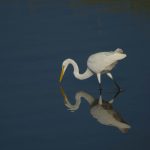 This first episode in this season of the Emmy nominated series features SSI researchers from the University of New England and the Wells National Estuarine Research Reserve, studying the Saco River Estuary. The team is gathering extensive field data from the estuary to develop a grading system to assess the health of the estuary using key indicators that matter to local stakeholders. The team hopes that through active discussion and problem solving the river will remain a vital resource for the community.
This first episode in this season of the Emmy nominated series features SSI researchers from the University of New England and the Wells National Estuarine Research Reserve, studying the Saco River Estuary. The team is gathering extensive field data from the estuary to develop a grading system to assess the health of the estuary using key indicators that matter to local stakeholders. The team hopes that through active discussion and problem solving the river will remain a vital resource for the community.
Additional video podcasts:
- Commitment to the Environment
- Fish Stocks and Species Studies
- Fish Sampling & Measurement Saco River Pride
Featured Research Project:
Sustaining Quality of Place in the Saco River Estuary Through Community Based Ecosystem Management
Culvert Operations
Visit Maine Public’s “Sustainable Maine” webpage to view this episode.
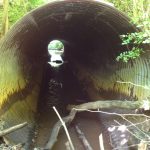 “Culvert Operations” – Extreme weather costs Maine communities millions of dollars in damage, and many experts predict that it’s likely to get worse. Some communities are finding out the hard way that their culverts are no longer big enough to handle the increasing size of floods. It’s estimated that there are hundreds of thousands of culverts in Maine, ranging from small drainages under driveways to moose-size culverts under major highways to keep streams and wildlife moving. Failed culverts can disrupt lives and commerce, threaten fragile ecosystems, and quickly swamp municipal budgets. ’Culvert Operations’ shows how one research team is working with communities to plan for future extreme weather events.
“Culvert Operations” – Extreme weather costs Maine communities millions of dollars in damage, and many experts predict that it’s likely to get worse. Some communities are finding out the hard way that their culverts are no longer big enough to handle the increasing size of floods. It’s estimated that there are hundreds of thousands of culverts in Maine, ranging from small drainages under driveways to moose-size culverts under major highways to keep streams and wildlife moving. Failed culverts can disrupt lives and commerce, threaten fragile ecosystems, and quickly swamp municipal budgets. ’Culvert Operations’ shows how one research team is working with communities to plan for future extreme weather events.
Additional video podcasts:
- Proactive Planning
- Concern Makes Change
- Ground Truth – Finding Culverts
- Do it Once, Do it Well
- Culverts Crossing Communities
Featured Research Project:
Helping Communities Weather the Storms
Preserving Paradise
Visit Maine Public’s “Sustainable Maine” webpage to view this episode.
![]() The final episode titled “Preserving Paradise” features SSI researchers using new mapping tools and working with stakeholders to allow for “smarter” development across the state. The Alternative Futures Team, based at the University of Maine and University of Maine School of Law, uses focus groups and workshops to help planners and decision-makers figure out what effect the choices they make today may have on the economic, social and environmental future of their communities.
The final episode titled “Preserving Paradise” features SSI researchers using new mapping tools and working with stakeholders to allow for “smarter” development across the state. The Alternative Futures Team, based at the University of Maine and University of Maine School of Law, uses focus groups and workshops to help planners and decision-makers figure out what effect the choices they make today may have on the economic, social and environmental future of their communities.
Additional video podcasts:
- Complex Problems, Creative Approaches
- Land Use Bridging
- Stakeholder Interests
- Maine’s Alternative Futures
- Win-Win Solutions
- Different Scenarios, Different Solutions
Featured Research Project:
Sustainable Maine: Season 2
Saving Our Lakes
Visit Maine Public’s “Sustainable Maine” webpage to view this episode.
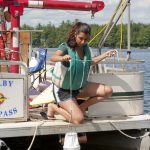 In the first episode of this season of Sustainable Maine, faculty from Colby College Departments of Chemistry, Geology, Biology, Environmental Studies and Social Sciences collaborate with local conservation groups to form interdisciplinary teams with stakeholder participation to understand the impact of landscape and lake-ecosystem changes in the development of central Maine. The Belgrade Lakes region will be used as a model because it provides a unique laboratory to understand the complex dynamics between environmental, biogeochemical, and socio-economic systems.
In the first episode of this season of Sustainable Maine, faculty from Colby College Departments of Chemistry, Geology, Biology, Environmental Studies and Social Sciences collaborate with local conservation groups to form interdisciplinary teams with stakeholder participation to understand the impact of landscape and lake-ecosystem changes in the development of central Maine. The Belgrade Lakes region will be used as a model because it provides a unique laboratory to understand the complex dynamics between environmental, biogeochemical, and socio-economic systems.
Additional video podcasts:
Featured Research Project:
Basket Trees – Saving a Tradition
Visit Maine Public’s “Sustainable Maine” webpage to view this episode.
 A tiny invasive bug, the emerald ash borer could decimate Maine’s ash trees and jeopardize the livelihoods of Maine’s Indian basket makers, who rely on the tree for their time-honored craft. Darren Ranco, UMaine associate professor of anthropology and Chair of Native American Programs, is leading an SSI team that brings together diverse groups to try to prevent, detect and respond to this threat.
A tiny invasive bug, the emerald ash borer could decimate Maine’s ash trees and jeopardize the livelihoods of Maine’s Indian basket makers, who rely on the tree for their time-honored craft. Darren Ranco, UMaine associate professor of anthropology and Chair of Native American Programs, is leading an SSI team that brings together diverse groups to try to prevent, detect and respond to this threat.
Additional video podcasts:
Featured Research Project:
Mobilizing to Fight the Emerald Ash Borer
Pools, Policy and People – Maine’s Vernal Pools
Visit Maine Public’s “Sustainable Maine” webpage to view this episode.
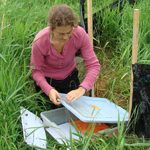 Many Maine communities are facing the same dilemma: how to maintain economic viability without compromising the ecological integrity of natural resources that attract people to Maine. Aram Calhoun, UMaine professor of wetland ecology, is leading an SSI research team that uses local vernal pool conservation as a model to help communities find ways to balance economic development with natural resource conservation on private land.
Many Maine communities are facing the same dilemma: how to maintain economic viability without compromising the ecological integrity of natural resources that attract people to Maine. Aram Calhoun, UMaine professor of wetland ecology, is leading an SSI research team that uses local vernal pool conservation as a model to help communities find ways to balance economic development with natural resource conservation on private land.
Additional video podcasts:
Featured Project:
Protecting Natural Resources at the Community Scale
Sustainable Maine: Season 1
The Triple Bottom Line
Visit Maine Public’s “Sustainable Maine” webpage to view this episode.
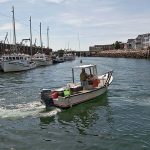 The first episode of “Sustainable Maine” travels Down East to meet SSI researchers, fishermen and others who are collaborating to make sure tidal power in Cobscook Bay is developed sustainably. We then head to Central Maine, where researchers are working with family forest owners struggling to steward their land in the face of growing pressures.
The first episode of “Sustainable Maine” travels Down East to meet SSI researchers, fishermen and others who are collaborating to make sure tidal power in Cobscook Bay is developed sustainably. We then head to Central Maine, where researchers are working with family forest owners struggling to steward their land in the face of growing pressures.
Additional video podcasts:
Featured Research Projects:
Desperate Alewives
Visit Maine Public’s “Sustainable Maine” webpage to view this episode.
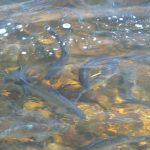 Once migrating by the millions up Maine’s rivers to spawn in the spring, alewife populations have plummeted in the past hundred-plus years. That spells trouble for everything from fisheries to local economies. Can alewives be brought back?
Once migrating by the millions up Maine’s rivers to spawn in the spring, alewife populations have plummeted in the past hundred-plus years. That spells trouble for everything from fisheries to local economies. Can alewives be brought back?
SSI researchers aim to find out. They’re studying the Androscoggin and Kennebec rivers and their shared watershed to learn what might work to restore this vital link in the food chain.
Additional video podcasts:
Featured Research:
